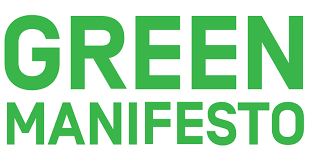Moses Ziyambi
While the environment and climate change have already become huge electoral matters in some
developed countries of the West, political parties in Zimbabwe seem to be slowly but surely
embracing similar themes in their campaign messages.
While the main opposition Citizens Coalition for Change (CCC) has released a manifesto, the
ruling Zanu PF, in a drastic departure from precedent, has chosen not to; claiming that its record
of delivery should act as its manifesto.
President Emmerson Mnangagwa, who is seeking re-election, is basking in his latest
achievement of ending crippling power cuts after his government built two new units at Hwange
Power Station.
The new units added just above 600 megawatts of new power onto the country’s hitherto
severely constrained grid thereby giving much-needed relief to households and industry
The development indeed helped the environment by lessening pressure on trees that always get
cut down more frequently when electricity get cut.
At his campaign rallies, President Mnangagwa hardly misses a chance to highlight this success,
which reversed up to 18 hours of load-shedding, as evidence of the country making progress.
However, that the new units are coal-fired puts a damper on hopes for cleaner energy generation
in a country with abundant sunshine and wind for the greater part of the year.
“My government has now committed to reducing emissions by 40 percent before 2030. This
builds on a previous commitment for a 33-percent emissions reduction set in 2017. The new
target will see greenhouse gas emissions curbed to 44.7 million tonnes of carbon dioxide
equivalent (Mt CO2e) by 2030, a reduction of about 30 million tonnes. One of our routes to
achieve that is through significant expansion of renewable energy with the aim of having 26.5
percent of all energy from renewable sources by 2030. This includes investment in hydro energy,
solar energy and biomass,” he wrote back in November 2021.
The National Clean-Up Day, also stands out as part of his signature environment policy born out
of the acknowledgement of pollution and littering as some of the biggest problems facing
Zimbabwe.
The National Clean-Up Day, which was declared on December 05, 2018, is conducted on the
first Friday of every month to help solve the waste management challenges in the country.
“The world is moving towards the achievement of the Sustainable Development Goals (SDGs)
by 2030 and Zimbabwe certainly contributes to this vision as shown by the Government led in
declaring a National Clean-Up Day. Addressing waste management challenges that have risen
and proven to be a thorn in the side worldwide contributes to the achievement of the vision of
SDG 11 on Sustainable Cities and Communities and SDG 12 on Responsible Consumption and
Production respectively,” the government says.
For all its colour, the CCC manifesto, however, gives just a little bit more than a superficial
glance on matters of the environment; promising to establish a ‘Green Zimbabwe’.
Under a section titled ‘The Environment & Climate Change’, the party pledges to come up with
policies that facilitate environmental restoration.
“The citizens’ government will prioritise and adequately fund and incentivise the protection and
preservation of our environment. We believe that the environment is currently being held in trust
by present generations for future generations,” part of the manifesto reads.
This, the documents further reads, will be achieved through tree planting, establishment of
climate-smart and cities, promotion of the use of clean energy and provision of clean water.
Through the manifesto, the party also promises to mainstream climate change, standardise and
regulate emissions, invest in ICT for climate change, and to strictly adhere to provisions of the
United Nations Framework Convention on Climate Change (UNFCCC).
Under a section titled ‘Sustainable Morden Cities and Towns’, the opposition party
acknowledges the environmental challenges faced in the country’s urban areas.
“Currently, all of Zimbabwe’s cities and towns are in a state of decay as characterised by
deteriorating infrastructure, overcrowding, continuous rise of slums, heavily polluted streets, and
other form of informal businesses and human settlements,” part of the manifesto reads.
The part pledges to ‘construct new modern smart cities’ as part of the solution to the problems
but there is no explanation as to how this will be actually done.
In 2021, Green parties had increased their vote share in 13 European countries in national
elections, according to a survey conducted by the BBC. In six of those countries – Austria,
Belgium, Finland, Ireland, Luxembourg and Sweden – green parties had a share of power in
coalition governments.






